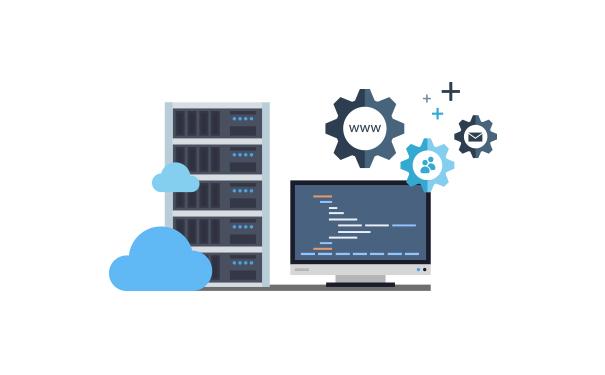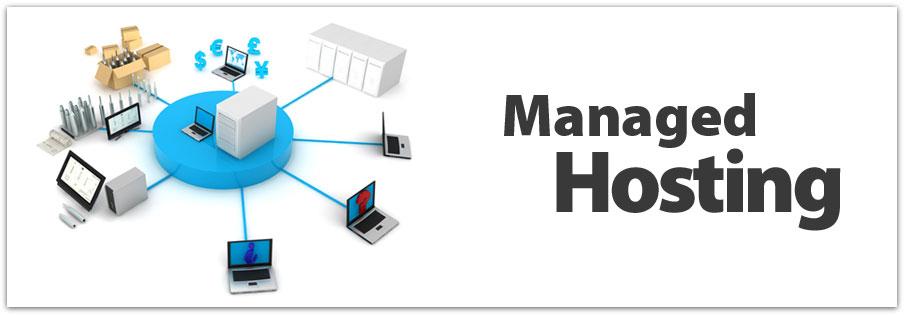What is Managed Hosting? Do You Need It? (Beginner’s Guide)
Hey there! If you’re diving into the digital world,weather you’re starting a blog,launching an online store,or building a business website,you’ve probably come across the term “managed hosting.” But what does that even mean? And more importantly, do you really need it?
In this beginner’s guide, we’ll break it all down for you in simple terms. Managed hosting might sound like something only tech experts need to worry about, but trust us, understanding this concept can make your life a whole lot easier. Imagine having a team of professionals handling all the nitty-gritty details of your website’s hosting while you focus on what you do best—growing your brand and connecting with your audience. Sounds appealing,right?
So,whether you’re just curious about what managed hosting entails or weighing your options for your next big project,stick around! We’ll explore the ins and outs of managed hosting,its benefits,and why it might very well be the perfect fit for you. Let’s get started!
Understanding Managed hosting and Its benefits
Managed hosting is a thorough solution designed for businesses that want to focus on their core operations while leaving the complexities of server management to experts. With managed hosting, all the technical details—from setup and maintenance to security and updates—are handled by the hosting provider. This allows you to channel your energy into growing your business rather than worrying about server downtimes or software patches.
Here are a few key benefits of opting for managed hosting:
- Expert Support: Access to a team of professionals around the clock who can resolve issues quickly.
- Enhanced Security: Managed hosting providers implement advanced security measures, including firewalls, DDoS protection, and regular backups.
- Performance Optimization: Your hosting service is tailored to ensure optimal performance for your applications and websites.
- Scalability: Easily adjust your resources as your business grows without notable downtime or hassle.
- Cost-Effectiveness: While managed hosting may have a higher upfront cost, the long-term savings in time and resources can be significant.
One of the standout features of managed hosting is the peace of mind it offers. Imagine not having to stress about the technical aspects of your website or request. Instead, you can spend more time on strategic initiatives that drive business growth. For startups and small businesses, this can be particularly favorable, as it allows them to leverage enterprise-level resources without the associated costs.
Additionally, many managed hosting providers offer customizable plans that cater to specific business needs.This flexibility means you can choose the right level of service based on your requirements,whether you’re running a simple blog or a complex e-commerce platform. Here’s a rapid comparison of some common features:
| Feature | Shared Hosting | Managed Hosting |
|---|---|---|
| Server Management | Limited | Comprehensive |
| Security | Basic | Advanced |
| Performance | Variable | Optimized |
| Support | Standard | 24/7 Expert Support |
ultimately,choosing managed hosting means choosing a partner in your success. It ensures that your digital infrastructure is robust,secure,and capable of meeting the demands of today’s fast-paced online habitat. If you’re still sitting on the fence about it, consider the value of having dedicated resources that can enhance your online presence while you focus on what you do best.
Is Managed Hosting Right for Your Business?
When considering whether managed hosting is the right fit for your business, it’s essential to evaluate your specific needs and resources. Managed hosting offers a variety of benefits that can enhance your online presence, but it may not be necessary for everyone.
Consider the following advantages of managed hosting:
- Expert Support: With managed hosting, you get access to a team of professionals who are available 24/7 to address any technical issues. This can be a significant relief for businesses without an in-house IT team.
- Time Savings: By outsourcing server management, your team can focus on core business activities. Freeing up your time can lead to increased productivity and innovation.
- Enhanced Security: Managed hosting providers typically include robust security measures, such as firewalls, malware scanning, and regular backups, helping to protect your sensitive data.
- scalability: As your business grows, managed hosting can easily accommodate increased traffic and resource demands, ensuring that your website remains responsive and functional.
However, it’s crucial to weigh these benefits against some potential drawbacks:
- Cost: Managed hosting tends to be more expensive than shared hosting options. For startups or small businesses with tight budgets, this could be a significant consideration.
- Less Control: If you prefer to manage everything yourself, the hands-off approach of managed hosting may feel limiting. You won’t have as much direct control over server configurations and management.
To help you decide, think about your business size, the complexity of your website, and whether or not you have the technical skills in-house. If your website is mission-critical and downtime isn’t an option, managed hosting could be worth the investment.
Ultimately, the choice boils down to balancing your technical needs against your budget and available resources. If your business relies heavily on online operations, managed hosting could provide peace of mind, allowing you to focus on what you do best.
Here’s a quick comparison of managed hosting versus othre hosting solutions:
| Feature | Managed Hosting | Shared Hosting | VPS Hosting |
|---|---|---|---|
| Support | 24/7 Expert Support | Limited Support | Partial Support |
| Security | Advanced Security Measures | Basic Security | Moderate Security |
| Management | Fully Managed | Self-Managed | Partially Managed |
| Price | Higher Cost | Affordable | Moderate Cost |

Key features of Managed Hosting Explained
When considering managed hosting, it’s essential to understand the features that set it apart from standard hosting options. Managed hosting services offer a range of benefits designed to alleviate the burden of server management from your shoulders, allowing you to focus on what truly matters—growing your business.
1. server Management: One of the standout features is that managed hosting providers take care of all server management tasks. This includes:
- Regular updates and patches to ensure security.
- Monitoring server performance to optimize speed and uptime.
- Backup services to protect your data against loss.
2. Enhanced Security: Security is a top concern for any online business. Managed hosting typically includes:
- Firewalls and DDoS protection to fend off malicious attacks.
- SSL certificates to encrypt data transmissions.
- Regular security audits to identify and rectify vulnerabilities.
3. Scalability: As your business grows, so do your hosting needs. Managed hosting offers:
- Flexible resource allocation that can adapt to increasing traffic.
- Easy upgrades to more powerful server configurations.
- Support for various applications and technologies as you expand.
4. 24/7 Expert Support: Having access to knowledgeable support staff around the clock is a significant advantage. Managed hosting services frequently enough provide:
- Immediate assistance for technical issues.
- Guidance on best practices and optimization strategies.
- Personalized support tailored to your specific needs.
5. Performance Optimization: Managed hosting platforms are typically optimized for speed and performance. Features may include:
- Content Delivery Networks (CDNs) to reduce latency.
- Load balancing to distribute traffic evenly.
- Specialized caching solutions to speed up page load times.
| feature | Benefits |
|---|---|
| Server Management | Hands-off maintenance and updates. |
| Enhanced Security | Peace of mind with robust protection. |
| Scalability | Seamless growth to meet demand. |
| 24/7 Expert Support | Assistance whenever you need it. |
| Performance Optimization | Faster loading speeds for users. |
By leveraging these features, businesses can enjoy not only improved convenience and security but also enhanced performance and support, making managed hosting a compelling option for those looking to streamline their online operations.
The Cost of Managed Hosting: Is it Worth It?
When considering managed hosting for your website,one of the most pressing questions is often about the cost and whether the investment is truly worthwhile. Managed hosting typically comes with a higher price tag than traditional hosting options, but it’s essential to weigh what you get in return.
With managed hosting, you’re not just paying for server space; you’re investing in a comprehensive service that includes:
- 24/7 Technical Support: Access to a team of experts who can help resolve issues quickly, reducing downtime.
- Automatic Updates: Regular updates to software and security protocols ensure your site remains secure and up to date.
- performance Optimization: Managed hosting services frequently enough include tools and configurations designed to enhance your site’s speed and reliability.
- backup Solutions: Regular backups safeguard your data, offering peace of mind in case of unforeseen events.
When you break down the costs, you may find that managed hosting can actually be cost-effective in the long run. Consider the following factors:
| Cost Factor | Traditional Hosting | Managed Hosting |
|---|---|---|
| Monthly Fee | $$ | $$$ |
| Support Availability | Limited | 24/7 |
| Security | Basic | High |
| Backup Frequency | Manual | Automatic |
As you can see, while the monthly fee for managed hosting is higher, the benefits you receive—especially in terms of security and support—can far outweigh the costs associated with potential downtime or data loss. Additionally, businesses that rely heavily on their online presence may find that the investment pays for itself thru improved performance and customer satisfaction.
Ultimately, whether managed hosting is worth the cost depends on your specific needs. If you’re running a mission-critical site or don’t have the time or expertise to manage your hosting environment, choosing a managed hosting provider could be one of the best decisions you make for your business.
How Managed Hosting Improves Your Website Performance
When it comes to website performance, every millisecond counts. Managed hosting services are designed to optimize speed and reliability, ensuring that your site not only runs smoothly but also provides a seamless experience for visitors. Here’s how opting for managed hosting can transform the way your website performs.
Enhanced Speed
One of the most significant advantages of managed hosting is the speed it offers. Managed hosting providers utilize high-performance servers and advanced technologies that accelerate the loading times of your website.Key features include:
- Content Delivery Networks (CDNs): these networks distribute your content across various geographical locations, reducing latency and improving load times.
- Optimized Server Configurations: Managed hosting providers fine-tune server settings specifically for your website, ensuring optimal performance.
- Scalable Resources: With managed hosting, you can easily scale resources up or down based on traffic demands, maintaining performance during peak times.
Improved Security
Website security is paramount, and managed hosting offers robust protection measures that enhance performance indirectly. By utilizing features like:
- Regular Backups: Automated backups mean your data is safe, and recovery is quick, ensuring minimal downtime.
- Firewalls and DDoS Protection: Protecting your site from malicious attacks helps maintain speed and uptime.
- Regular Software Updates: Keeping your software up to date prevents vulnerabilities that could lead to performance issues.
Expert Support
Another key factor that distinguishes managed hosting from traditional hosting is the level of support provided. With managed hosting, you have access to a team of experts who are dedicated to monitoring and optimizing your site. Their expertise can lead to:
- Proactive Issue Resolution: Experts can identify and resolve potential performance bottlenecks before they affect your website.
- Performance Monitoring: Continuous monitoring ensures that your site operates at its best, with adjustments made as needed.
- Tailored recommendations: You receive personalized suggestions on how to improve your site’s performance based on analytics.
Resource Management
Managed hosting allows for better resource management, ensuring your website has the bandwidth and processing power required to function optimally. Here’s how managed hosting excels:
| Feature | Shared Hosting | Managed Hosting |
|---|---|---|
| Resource Allocation | Limited; shared with others | Dedicated and scalable |
| Performance Optimization | Basic | Advanced; tailored to your needs |
| Technical Support | Basic | 24/7 expert support |
managed hosting is an investment that pays off by significantly improving your website’s performance. With faster load times, enhanced security, expert support, and superior resource management, you create a better user experience that can lead to higher engagement and conversions. This not only benefits your visitors but also positively impacts your search engine rankings, driving more traffic to your site. If you’re serious about your online presence, managed hosting could be the solution you’ve been looking for.

The Role of Security in Managed Hosting Solutions
When it comes to managed hosting solutions, security is not just an add-on; it’s a fundamental pillar that underpins the entire infrastructure. In today’s digital landscape, where cyber threats are becoming more sophisticated, ensuring the safety of your data and applications is paramount. Managed hosting providers understand this and incorporate robust security measures into their services to give you peace of mind.
One of the key advantages of managed hosting is the 24/7 monitoring and support.This means that your servers are constantly surveilled for any unusual activity or potential threats. Managed hosting providers utilize advanced security tools such as:
- Firewalls: To filter and monitor incoming and outgoing traffic.
- Intrusion Detection Systems (IDS): To identify and respond to security breaches.
- Regular Security Audits: To assess vulnerabilities and update security protocols.
Moreover, data encryption is a critical aspect of security in managed hosting. Sensitive facts, whether in transit or at rest, is protected through encryption technologies, ensuring that even if data is intercepted, it remains unreadable to unauthorized users. This level of protection is essential for businesses handling personal customer information, financial data, or proprietary content.
Another significant factor is compliance with security standards and regulations, such as PCI-DSS for payment processing or GDPR for data protection. managed hosting services typically have protocols in place to help businesses comply with these regulations, minimizing the risk of costly fines and reputational damage.
To summarize, encompasses various layers of protection, including:
- Real-time monitoring and alerting
- Data encryption and secure backups
- Regular updates and patch management
- Compliance support and risk management
Investing in a managed hosting solution with a strong focus on security means you’re not just protecting your data; you’re safeguarding your brand’s reputation and ensuring business continuity. As cyber threats evolve, so too should your approach to security, making managed hosting a wise choice for those looking to enhance their online presence securely.

Getting Started with Managed Hosting: A Step-by-Step Guide
Understanding Managed Hosting
Managed hosting is a type of web hosting where the service provider takes care of the day-to-day management of servers and applications. This means you can focus on running your business rather of worrying about server maintenance or security issues. For many, the idea of managing a server can be daunting, and that’s where managed hosting comes into play.
Why Consider Managed Hosting?
if you are a beginner, you might wonder if managed hosting is right for you. Here are some benefits that can help you decide:
- Expert Support: With managed hosting, you gain access to a team of professionals who are experienced in server management.
- Enhanced Security: Managed hosting providers typically offer advanced security features, such as firewalls and regular backups.
- scalability: As your business grows, managed hosting can easily scale to meet your increasing demands.
- Performance Optimization: Providers often optimize your server for better speed and reliability.
Choosing the Right Managed Hosting Provider
When selecting a managed hosting provider,consider the following factors:
- Reputation: Look for providers with positive reviews and a solid track record.
- Support: ensure they offer 24/7 support, as problems can arise at any time.
- Pricing: Compare pricing plans but remember that the cheapest option isn’t always the best.
- Features: Check the features included, such as backups, security, and performance monitoring.
Getting Started
Once you’ve made your decision, setting up your managed hosting typically involves a few straightforward steps:
- Choose a hosting plan that fits your needs.
- Sign up and provide necessary information.
- Work with the provider’s support team to configure your server.
- Deploy your website and monitor its performance.
Conclusion
Managed hosting can simplify your online presence by taking the technical burden off your plate. Whether you’re running a small blog or a large e-commerce site, embracing managed hosting could be the key to a smooth and triumphant online experience.

choosing the Right Managed Hosting Provider for You
Finding the perfect managed hosting provider can feel like searching for a needle in a haystack. With so many options available, it’s crucial to consider what will best suit your unique needs. Here are some key factors to keep in mind:
- Performance and Speed: Your website’s loading speed can significantly impact user experience and SEO rankings. Look for providers that offer high-performance servers and content delivery networks (CDNs) to ensure quick loading times.
- Support: 24/7 customer support is a must. Make sure the provider has a reputation for responsive and knowledgeable support staff who can assist you whenever issues arise.
- scalability: As your business grows, your hosting needs will change. Choose a provider that allows you to easily scale your resources without experiencing downtime or intricate migrations.
- Security Features: Cybersecurity is critical. Look for providers that offer features such as SSL certificates, DDoS protection, and regular backups to keep your data safe.
Another vital aspect to consider is the technology stack. Some providers specialize in specific platforms or technologies,such as WordPress or e-commerce solutions. if you have a preferred CMS or framework,ensure your chosen provider is optimized for it.
Pricing is also an essential factor. While it’s tempting to go for the cheapest option, consider the features and services included in the package. A slightly higher investment can lead to better performance and support, ultimately saving you time and money in the long run.
| provider | Key Features | Starting Price |
|---|---|---|
| SiteGround | 24/7 Support, Daily Backups, Free CDN | $3.99/mo |
| WP Engine | Managed Updates, Staging Environments, Premium support | $20/mo |
| Bluehost | Free Domain, SSL, 1-Click Install | $2.95/mo |
lastly,read customer reviews and testimonials. They offer valuable insights into the experiences of others and can help you avoid potential pitfalls. Taking the time to conduct thorough research will pay off when you select a provider that aligns with your business goals and gives you peace of mind.

Common Misconceptions About Managed Hosting
When it comes to managed hosting, there are several misunderstandings that can lead businesses astray. Let’s clear up some of the most common misconceptions surrounding this hosting solution.
- Managed Hosting is Only for Large Businesses: Many believe that managed hosting is solely for enterprises with massive resources. in reality, it can be a great fit for small to medium-sized businesses as well. Managed hosting provides essential support and scalability,which can help even smaller companies grow without the hassle of managing servers themselves.
- It’s Too Expensive: While it’s true that managed hosting often comes with a higher price tag than shared hosting, the investment is often justified. The costs include not only the hosting itself but also invaluable support services, security, and regular backups — all of which can save you money in the long run by reducing downtime and data loss.
- You Lose Control Over Your Server: Some fear that opting for managed hosting means relinquishing control of their server. In fact, reputable managed hosting providers offer customizable solutions, allowing you to choose the level of control you want while still benefiting from expert management and support.
- Managed Hosting is the Same as Cloud Hosting: While cloud hosting can be managed, not all managed hosting solutions are cloud-based. Managed hosting can be either on dedicated servers or cloud environments,giving you multiple options based on your specific needs.
Another misconception is that managed hosting doesn’t provide adequate security. In truth, many managed hosting providers offer robust security measures, including firewalls, DDoS protection, and regular security audits. These features are typically included in the service, ensuring a higher level of protection than you might achieve on your own.
there’s a belief that migration to managed hosting is complicated. While it can seem daunting, most managed hosting providers offer migration services as part of their package, ensuring a smooth transition with minimal downtime.They have teams dedicated to handling the process, allowing you to focus on your business rather than technical details.
| Misconception | Reality |
|---|---|
| only for large businesses | Ideal for businesses of all sizes |
| Too expensive | Cost-effective with long-term savings |
| Loss of control | Customizable control options available |
| Same as cloud hosting | Can be on dedicated or cloud servers |
| Inadequate security | Includes robust security features |
| complicated migration | Smooth migration services offered |
real-life Success Stories: How Managed Hosting Transformed businesses
Tips for Transitioning to Managed Hosting Smoothly
Transitioning to managed hosting can feel daunting, but with the right approach, you can ensure a seamless experience. Here are some practical tips to help you make the switch effortlessly:
- Assess Your Current Infrastructure: Before making any changes, take stock of your existing setup. Identify what works, what doesn’t, and what features you truly need from a managed hosting provider.
- Choose the Right Provider: Not all managed hosting services are created equal.Research various providers,read reviews,and evaluate their support offerings. Look for one that aligns with your specific requirements.
- Create a Migration Plan: Outline the steps involved in your migration. This should include timelines, responsibilities, and a checklist of what needs to be transferred, from databases to applications.
- Communicate with Your Team: Ensure that everyone involved in the transition is on the same page. Hold meetings to discuss the migration process and address any concerns your team may have.
- Run Testing Protocols: After migration, conduct thorough testing to make sure everything is functioning as was to be expected.this includes checking website performance, security settings, and backup processes.
To better understand the features you might want from a managed hosting provider,here’s a quick comparison table:
| Feature | Basic Hosting | Managed Hosting |
|---|---|---|
| Server Management | Manual | Automated |
| Technical Support | Limited | 24/7 |
| Backups | Manual | Automatic |
| Security Updates | Rare | Regular |
Lastly,don’t forget to monitor your website closely during the initial transition phase. Look out for any issues that may arise and be ready to communicate with your provider for swift resolutions. With good planning and execution, you’ll be enjoying the benefits of managed hosting in no time!
Future Trends in Managed Hosting You Should Know About
As we dive deeper into the evolving landscape of technology, managed hosting is poised to undergo significant transformations that can reshape the way businesses operate online. Here are some trends to watch for:
- Increased Automation: The rise of AI and machine learning is set to enhance automation in managed hosting environments. Expect faster deployment times and improved resource management, allowing businesses to focus more on strategy and less on technicalities.
- Edge Computing: With more businesses seeking low-latency solutions, edge computing will become crucial. This means managed hosting providers will need to adapt their infrastructures to enable processing closer to the user, resulting in quicker load times.
- Enhanced Security Protocols: Cyber threats are becoming increasingly sophisticated. Managed hosting services will likely implement advanced security features, such as AI-driven security monitoring and automated threat detection, to protect client data.
- Hybrid and Multi-Cloud Solutions: Organizations are moving towards hybrid environments that combine on-premises, private, and public clouds. Managed hosting will evolve to support seamless integration across diverse infrastructures, offering flexibility and scalability.
- Focus on Sustainability: as businesses become more environmentally conscious, managed hosting providers will prioritize sustainable practices. this includes using energy-efficient data centers and promoting green technologies.
One of the most exciting developments is the increasing emphasis on customer experience. Managed hosting services are now looking to offer personalized support solutions to meet individual business needs. This shift not only fosters stronger client relationships but also drives innovation in service offerings.
| Trend | Impact |
|---|---|
| automation | Faster deployments and improved efficiency |
| Edge Computing | Reduced latency and improved user experience |
| Security Enhancements | Better protection against cyber threats |
| Hybrid Solutions | Greater flexibility and scalability |
| Sustainability | Environmental responsibility and cost savings |
staying abreast of these trends will not only help businesses choose the right managed hosting solutions but also position them for future growth. Keeping an eye on these developments will ensure that you are not just keeping up but staying ahead in the digital landscape.
Frequently Asked Questions (FAQ)
Q&A: What is Managed Hosting? Do You Need It? (Beginner’s Guide)
Q1: What exactly is managed hosting?
A1: Great question! Managed hosting is a service where a hosting provider takes care of all the technical aspects of your server, including setup, maintenance, security, and support. Think of it as having a personal IT team that ensures your website runs smoothly, so you can focus on what you do best—running your business or creating content!
Q2: how is managed hosting different from shared or dedicated hosting?
A2: Excellent inquiry! In shared hosting, multiple websites share the same server resources, which can lead to slower performance and security risks. Dedicated hosting, on the other hand, gives you an entire server just for your website, but you’re still responsible for managing it. With managed hosting, you get the benefits of dedicated resources without the hassle of management. It’s like having your cake and eating it too!
Q3: Who should consider managed hosting?
A3: If you’re a beginner or someone who prefers to focus on your business rather than technical issues, managed hosting is definately worth considering. It’s perfect for small businesses, bloggers, or even larger enterprises looking to streamline operations. if you want peace of mind and 24/7 support without the tech headaches, managed hosting is calling your name!
Q4: What are the benefits of choosing managed hosting?
A4: There are several! First, you get expert support—many providers offer 24/7 assistance. Second, enhanced security features keep your website safe from threats. Third,automatic backups ensure you never lose your hard work. And let’s not forget about scalability; as your site grows, your hosting can grow with you seamlessly. It’s like having a safety net that allows you to leap forward without fear!
Q5: Are there any downsides to managed hosting?
A5: It’s important to consider the costs. Managed hosting can be pricier than shared hosting options, but many find the investment worthwhile for the peace of mind and support you receive. Additionally, you might have less control over server settings, which could be a concern for more tech-savvy users. But if you’re focused on ease and efficiency, those minor drawbacks often pale in comparison to the benefits!
Q6: How do I know if managed hosting is right for me?
A6: Start by assessing your website needs and your technical expertise. If you want a hassle-free experience and have a growing site, managed hosting is a solid choice. Also,consider how much time you want to spend on server management versus focusing on your content or business strategies. If you’d rather delegate the tech stuff, then managed hosting is definitely for you!
Q7: What should I look for when choosing a managed hosting provider?
A7: Look for a provider that offers robust support, strong security measures, easy scalability options, and a user-friendly interface. Reading reviews and checking uptime guarantees can also help you make an informed decision.Remember, you’re not just choosing a service; you’re partnering with a team that should align with your goals!
Q8: Final thoughts—why should I choose managed hosting?
A8: Managing a website can be complex, but it doesn’t have to be stressful! Choosing managed hosting means you’re investing in peace of mind, expert support, and freeing yourself to focus on what you love. With managed hosting, you can elevate your online presence without worrying about the nitty-gritty details. so why not consider it? Your future self will thank you!
Insights and Conclusions
if you’ve made it this far, it’s clear you’re curious about managed hosting—and for good reason! Whether you’re just starting out or looking to elevate your online presence, managed hosting can be a game-changer. It not only takes the technical headaches off your plate but also frees you up to focus on what you do best: growing your business and connecting with your audience.
While it may seem like an added expense, consider it an investment in peace of mind and professionalism. With expert support, enhanced security, and reliable performance, you can rest easy knowing that your website is in good hands. So, if you’re ready to take your online venture to the next level, managed hosting might just be the perfect fit for you.Why not give it a shot? Explore your options, compare providers, and see how managed hosting can simplify your life. your future self will thank you! Happy hosting!

